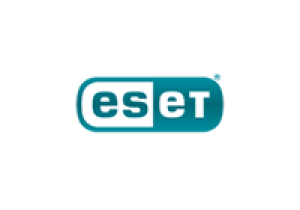Why should a lecture be interesting?
Estonia is not a country of miracles as it is often publicly presented and it had to get through the harsh initial phases of digitalization of Government too. It has accomplished acceptance of eID card in the commercial sector, however the most influential success factor were economic interests of the one single company. Slovakia, and also many other countries, does not have such advantage at its disposal, yet opportunities how to use eID card almost daily even for access to commercial services appear right now – in times when after 4 years we reached many positive objectives related to eID card.
Identity smart card, also known as eID card, has been introduced in numerous countries across European continent, including Slovakia and Estonia – the showcase of Government digitalization.
In the Baltic country this happened already in 2002, while here in Slovakia 11 years later. After the years elapsed since then, we can observe common parallels and differences between the two countries, but what´s even more important, it is possible to identify success factors of eID cards in commercial sector as well as factors that stand in the way of such accomplishment. Adopted directives, regulations and action plans within the strategic vision of single digital market of European Union opens window of opportunities for penetration of eID into the commercial sphere. Electronic ID card could then offer also to commercial services providers the unexhausted potential with positive economic impacts and at the same time improve the perception of eID by citizens.
Is Estonian story really as perfect and simple as it may appear at first sight? What motivated commercial sector in Estonia to make their services available to consumers via national eID card? And what has Slovakia in common with the recognized leader of digitalization? What are truly the most valuable use cases for eID cards in the commerce? Does any conjunction of interests of citizens, commercial institutions and government exist at all?
Peter Handzus from the DXC Technology will answer these and also many other questions related to practical use of eID in the commercial world.
Estonia is not a country of miracles as it is often publicly presented and it had to get through the harsh initial phases of digitalization of Government too. It has accomplished acceptance of eID card in the commercial sector, however the most influential success factor were economic interests of the one single company. Slovakia, and also many other countries, does not have such advantage at its disposal, yet opportunities how to use eID card almost daily even for access to commercial services appear right now – in times when after 4 years we reached many positive objectives related to eID card.
Identity smart card, also known as eID card, has been introduced in numerous countries across European continent, including Slovakia and Estonia – the showcase of Government digitalization.
In the Baltic country this happened already in 2002, while here in Slovakia 11 years later. After the years elapsed since then, we can observe common parallels and differences between the two countries, but what´s even more important, it is possible to identify success factors of eID cards in commercial sector as well as factors that stand in the way of such accomplishment. Adopted directives, regulations and action plans within the strategic vision of single digital market of European Union opens window of opportunities for penetration of eID into the commercial sphere. Electronic ID card could then offer also to commercial services providers the unexhausted potential with positive economic impacts and at the same time improve the perception of eID by citizens.
Is Estonian story really as perfect and simple as it may appear at first sight? What motivated commercial sector in Estonia to make their services available to consumers via national eID card? And what has Slovakia in common with the recognized leader of digitalization? What are truly the most valuable use cases for eID cards in the commerce? Does any conjunction of interests of citizens, commercial institutions and government exist at all?
Peter Handzus from the DXC Technology will answer these and also many other questions related to practical use of eID in the commercial world.
Sign in to Spring ITAPA 2024
Peter Handzuš
Peter Handzuš graduated from the University of Economics in Bratislava, the Faculty of Economic Informatics in the field of Economic Informatics. Before he was awarded a Master’s Degree in 2010, he has started his professional career at DXC Technology, formerly Hewlett-Packard Slovakia. As solution architect he participated on successful implementations of various projects, for instance electronic vehicle registration and electronic identification card, in the National Personalization Centre of the Ministry of Interior of the Slovak republic and simultaneously he technically supported mentioned systems at the client´s premises. In 2013 he succeeded in the selection process of young talents from the CEE region and was nominated by worldwi…
See more info about the speaker
Martin Mihálik
Martin Mihalik is Solution Architect in Hewlett Packard Enterprise. He obtained his master degree on Faculty of informatics and information technologies, Slovak university of technology in Bratislava in Information systems.During his studies he gained first professional skills in position programmer analyst working for Anasoft APR. There he worked on a project regarding the optimization of quality of processes on assembly lines. Beside programming he also familiarized himself with analysis, design and quality metodology Six Sigma. During his studies he as well took part in semestral student exchange program on Linneaus University, Vaxjo in Sweden. After getting back from Sweden he worked beside studying in position of programmer on a tel…
See more info about the speaker





















